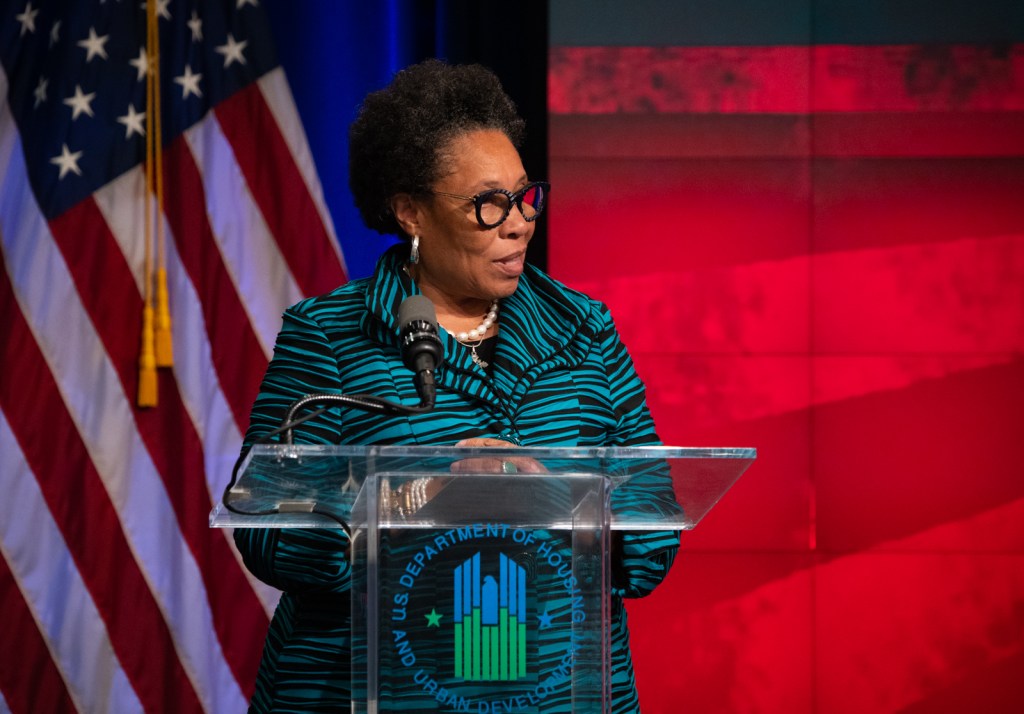Secretary of the U.S. Department of Housing and Urban Development (HUD) Marcia Fudge suggested to a congressional committee that the department could consider eliminating life-of-loan premium requirements for mortgages backed by the Federal Housing Administration (FHA), but did not offer any indication about the issue’s priority level at HUD.
Sitting for a HUD oversight hearing conducted by the U.S. House of Representatives Financial Services Committee on Jan. 11, Rep. Brad Sherman (D-Calif.) first brought the issue up by saying it is an important element to address for the kinds of people who most commonly make use of FHA mortgage programs.
“I don’t have to tell you, that’s working people, people of color [and] first-time homebuyers,” Sherman said. “They have to pay the mortgage insurance premiums, [which] raises their costs. Are you willing to look at not requiring them to make these payments through the life of the loan, but rather to eliminate the payments when they get a certain loan to value as the value of the house goes up?”
“Yes, I’m willing to look at it,” Fudge responded.
Nearly an hour after that exchange, Rep. Gregory Meeks (D-N.Y.) brought the topic up again.
“My question would be do you think there could be a scenario where FHA mortgage insurance premiums could follow a model that is similar to the private mortgage insurance [market] where, after a period of time you get equity in the home [that then] drops the monthly cost? Is that something you think we could work on, and that HUD could do?”
“I would love to see it happen,” Fudge responded.
When interviewed in December, leaders at multiple housing advocacy organizations including the Mortgage Bankers Association (MBA) and the National Housing Conference (NHC) cited the life of loan requirement as a key affordability issue in 2024.
“We think that FHA should consider further changes to the mortgage insurance premium, perhaps including the elimination of the life of loan premium requirement,” said Bob Broeksmit president and CEO of MBA to HousingWire in December. “On an FHA loan, you keep paying the mortgage insurance premium until you pay the loan off whereas in a conventional loan, once your equity reaches a certain point, you can get the mortgage insurance dropped.”
When asked about an MIP cut, NHC President and CEO David Dworkin said the “bigger issue” is the life of loan requirement, and that the MIP is currently “at a reasonable level.”
“[Life of loan] makes FHA a much more negative execution for the consumer,” Dworkin said last month. “Let’s say I have more than 20 or 25% equity in my house. I shouldn’t be paying mortgage insurance to FHA; I would not have to be doing it if I had a loan that was bought by Fannie Mae or Freddie Mac. And so I think that I’d like to see that addressed before we talk about another MIP cut.”





